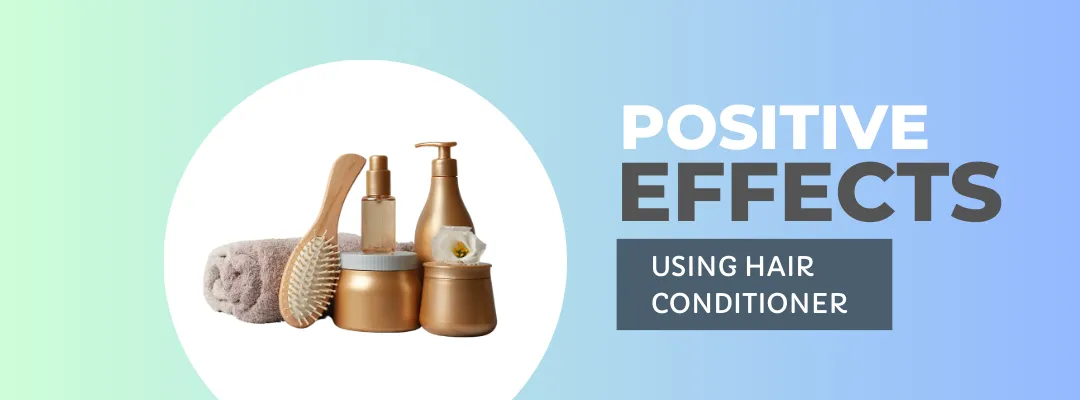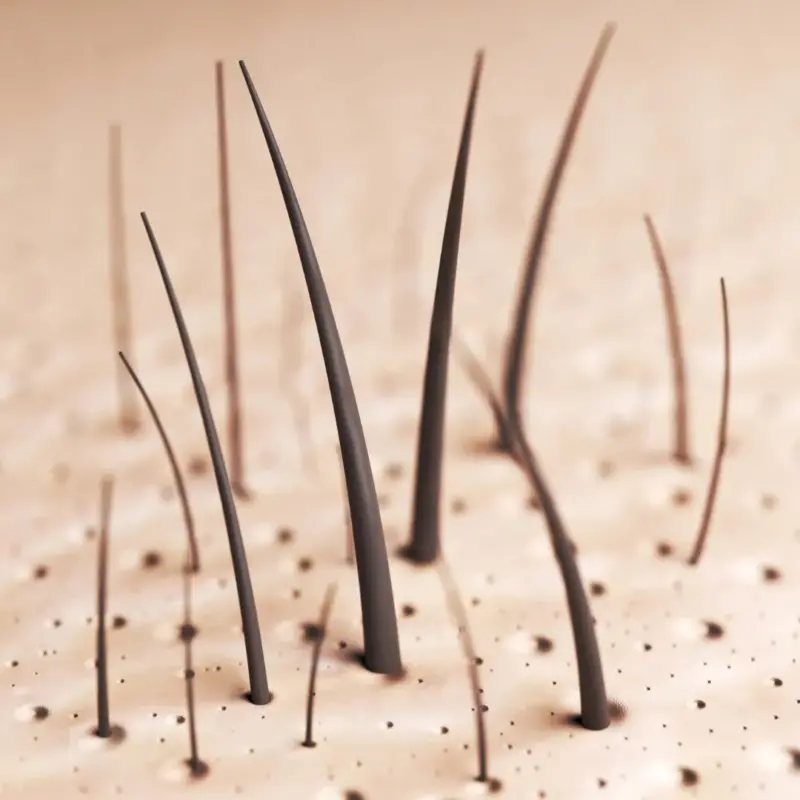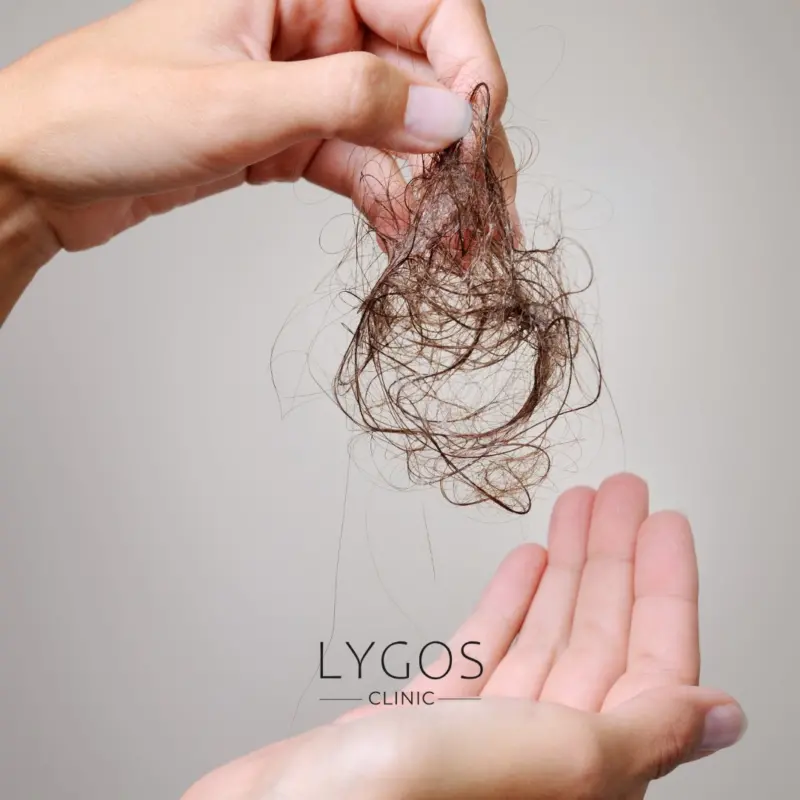Hair conditioner, what is its purpose, does it cause hair loss?

Introduction
Hair conditioner is an essential part of hair care routines, aiming to maintain hair health and provide softness and shine. However, many people may have concerns about the impact of hair conditioner on hair loss. In this article, we will provide information on what hair conditioner is, what it does, and its effects on hair loss.
Hair conditioner moisturizes, nourishes hair strands, and facilitates easy combing. Holding a special place among hair care products, it helps maintain the hair’s moisture balance and makes it easier to comb. As a result, using a hair conditioner can prevent hair breakage, contributing to overall hair health.
Those concerned about hair loss may wonder if using a conditioner increases it. However, when used correctly, a hair conditioner does not cause hair loss; instead, it contributes to strengthening the hair and achieving a healthier appearance. In the following sections, we will focus on the advantages of using hair conditioner and proper application techniques, exploring its positive effects on hair health in detail.
Positive Effects of Using Hair Conditioner on Hair Health

Hair conditioner plays a significant role in hair care routines, positively affecting hair health. When used correctly, it provides several advantages to hair strands, enhancing the overall appearance of the hair. In this section, we will delve into the positive effects of using hair conditioner on hair health. Firstly, hair conditioner moisturizes the hair strands, preventing the hair from appearing dry and dull by preserving its natural oils.
This moisturizing effect is crucial for dry hair prone to dryness due to factors such as dry air, frequent washing, or blow-drying. Maintaining the hair’s moisture balance helps keep the strands flexible and strong. Additionally, hair conditioner nourishes the hair strands. The vitamins, minerals, and proteins in its composition strengthen the hair structure, promoting healthier and more resilient hair. Strengthened hair strands become more resistant to external factors, reducing hair breakage.
Furthermore, hair conditioner facilitates easy combing by resolving knots between hair strands, reducing potential damage during combing. This, in turn, helps minimize hair breakage, contributing to long-term hair health. These positive effects of using hair conditioner become apparent when applied regularly and correctly. Using hair conditioner with the right techniques is a crucial step in improving your hair health.
Considerations When Choosing Hair Conditioner
The choice of hair conditioner can have a decisive impact on your hair health. The variety of brands and types of hair conditioners on the market can make selecting the right product challenging. In this section, we will examine the important factors to consider when choosing a hair conditioner. Firstly, selecting a hair conditioner suitable for your hair type is crucial. Hair conditioners designed to moisturize dry hair differ from those aiming to add volume to fine hair.
Assessing your hair type and choosing a product accordingly will help you derive maximum benefits from the conditioner. Paying attention to the product’s ingredients is also critical. Natural oils, vitamins, and proteins in the composition of hair conditioners positively impact hair health. Avoiding harmful chemicals helps keep your hair healthier in the long run. Reading the product’s ingredients and choosing ones with natural components suitable for your hair type is essential.
Carefully reading the instructions for using hair conditioner is also important. Conditioners not used in the correct dosage, duration, or frequency may cause hair to become heavy or oily. Therefore, following the manufacturer’s instructions will help you get the best results from the product. In this section, we will focus on the criteria to consider when choosing a hair conditioner, providing detailed insights to help you make the right selection.
How to Properly Apply Hair Conditioner

When hair conditioner is not applied correctly, the expected positive effects on hair health may not be achieved. In this section, we will focus on how to properly apply hair conditioner, explaining the steps to take for the most effective results. Firstly, it is essential to thoroughly wash your hair before applying conditioner. Clean hair allows the conditioner’s ingredients to penetrate the hair strands more effectively. Gently drying your hair before applying conditioner is also an important part of this process.
During the application of hair conditioner, it is crucial to start from the roots and evenly distribute the product towards the tips. Massaging the scalp gently during application allows the product to penetrate deeper. However, applying conditioner directly to the scalp may weigh down the hair, so caution is necessary. Using a wide-toothed comb when combing the hair after applying conditioner ensures an even distribution of the product and helps detangle knots between hair strands.
Rinsing the hair after applying conditioner is essential. Leaving conditioner residues on the hair can make it appear oily and heavy. Ideally, rinse your hair with lukewarm water after applying conditioner and follow it up with a cold-water rinse. In this section, by following the proper steps for applying hair conditioner, you will find practical tips to maximize the benefits for your hair health.
Natural Hair Conditioner Alternatives and Homemade Recipes
For those who prefer natural ingredients in their hair care products or want to make their own hair conditioners at home, this section will focus on natural hair conditioner alternatives and homemade recipes. Natural hair conditioner alternatives can often be made with easily accessible ingredients found at home. For example, natural elements such as coconut oil, argan oil, aloe vera gel, and apple cider vinegar are known for their moisturizing and nourishing properties.
In this section, we will explore the characteristics of natural hair conditioner alternatives and their effects on hair health. We will also provide practical recipes for those interested in making their own hair conditioners at home. Homemade hair conditioner recipes containing basic ingredients allow users to create personalized blends tailored to their specific needs.
Additionally, homemade conditioners offer the advantage of being customizable, natural, and free from chemical additives. Acquiring knowledge about natural hair conditioner alternatives and making your own at home can help make your hair care routine more organic and personalized. In this section, by focusing on the benefits of natural hair conditioner use and the steps to create homemade hair conditioners, readers will have the opportunity to explore various options.
Outro
Hair conditioner plays a vital role in maintaining hair health as an indispensable part of hair care routines. When chosen correctly and applied properly, it contributes to moisturizing, strengthening, and achieving a healthier appearance for the hair. In this guide, we aimed to provide readers with insights into the intricacies of using hair conditioner by focusing on its selection, proper usage techniques, and natural alternatives.
Choosing hair conditioners suitable for your hair type, examining their ingredients, and adopting correct application techniques will help maximize the benefits for your hair health. Exploring natural hair conditioner alternatives and homemade options allows for a more organic and personalized approach to hair care.
Remember that taking care of your hair health is the key to having healthy and strong hair in the long run. By managing your use of hair conditioner correctly and giving your hair the care, it needs, you can enjoy healthy and shiny hair. Wishing this guide on hair conditioner helps guide you, enjoy the health of your hair!





